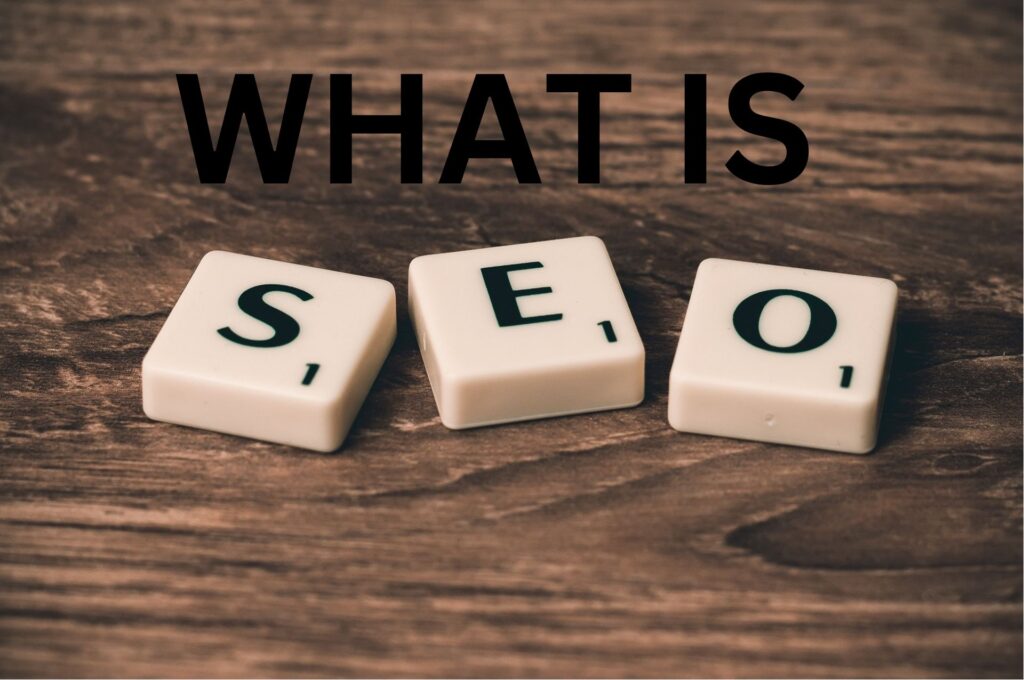Are you looking to improve your website’s visibility on search engines? Do you want to attract more visitors and drive more traffic to your site? Then you need to understand the basics of SEO. In this beginner’s guide, we’ll cover the definition, importance, and strategies of SEO to help you get started.

| TABLE OF CONTENTS What is SEO: definition and importance for websites How search engines work: crawling, indexing, and ranking Types of SEO: on-page, off-page, and technical SEO Keyword research: finding the right keywords for your website and content On-page optimization: optimizing content, titles, meta descriptions, headers, and images Off-page optimization: link building and social media marketing Technical optimization: improving website speed, mobile-friendliness, and site structure Measuring and tracking SEO success: tools and metrics to use Common SEO mistakes to avoid: black hat tactics and other pitfalls Future trends in SEO: voice search, artificial intelligence, and more. |
What is SEO?
It stands for search engine optimization (SEO). It refers to the process of optimizing your website and its content to improve its visibility and ranking on search engines like Google, Bing, and Yahoo. The goal of search engine optimization is to drive more traffic to your website by ranking higher in search engine results pages (SERPs) for relevant keywords and phrases. What is SEO in blogging.
Why is SEO important?
It is important for several reasons. First, it helps to drive more traffic to your website by improving its visibility on search engines. Second, it can help to improve the user experience on your website by making it easier to navigate and find information. Third, it can help to build trust and credibility with your audience by ranking higher in search results.
How do search engines work?
Search engines like Google use complex algorithms to crawl, index, and rank websites. Crawling refers to the process of following links on the web to find and collect data from websites. Indexing refers to the process of organizing and storing this data in a database for quick retrieval. Ranking refers to the process of determining the relevance and quality of this data to assign it a position on a SERP.
Types of SEO
There are three main types, on-page, off-page, and technical search engine optimization. On-page refers to optimizing your website’s content and HTML source code. Off-page refers to building backlinks and social media signals to your website. Technical search engine optimization refers to improving your website’s technical elements, such as website speed, mobile-friendliness, and site structure.
Keyword research
Keyword research is the process of finding the right keywords and phrases to target for your website and content. You should identify keywords that are relevant to your audience, have high search volume, and low competition.
Keyword research is an essential component of any search engine optimization (SEO) strategy. By understanding the keywords that your target audience is searching for, you can optimize your website and content to improve your ranking in search results.
There are a number of tools that businesses can use to conduct keyword research, including Google Keyword Planner, SEMrush, and Ahrefs. These tools can help you identify high-volume keywords that are relevant to your business and industry, as well as provide insight into the level of competition for each keyword.
On-page optimization
On-page optimization involves optimizing your website’s content, titles, meta descriptions, headers, and images. You should include your target keywords in these elements, but also focus on providing valuable and engaging content for your audience.
Off-page optimization
Off-page optimization involves building high-quality backlinks and social media signals to your website. You should focus on building relationships with other websites and online communities to earn links and shares.
Technical optimization
Technical optimization involves improving your website’s technical elements, such as website speed, mobile-friendliness, and site structure. You should ensure your website loads quickly, is easy to navigate on mobile devices, and has a logical site structure.
Measuring and tracking SEO success
Measuring and tracking it success is essential to understanding the effectiveness of your strategies. You can use tools like Google Analytics and Google Search Console to track metrics like traffic, rankings, and backlinks.
Common SEO mistakes to avoid
Common SEO mistakes to avoid include using black hat tactics, such as keyword stuffing and link schemes, and neglecting the user experience on your website. You should focus on providing high-quality content and following ethical search engine optimization practices.
Future trends in SEO
Future trends in search engine optimization include voice search, artificial intelligence, and more personalized search results. You should stay up to date with these trends and adjust your strategies accordingly.
In conclusion, SEO is a critical aspect of digital marketing that can help you to improve your website’s visibility and drive more traffic to your site. By understanding the basics of search engine optimization and implementing effective strategies, you can increase your online presence and build credibility with your audience.
FAQs
How long does it take to see results from SEO efforts?
- Answer: SEO is a long-term strategy that requires patience and persistence. It can take anywhere from a few weeks to several months to see noticeable results from your SEO efforts.
What is the difference between white hat and black hat SEO?
- Answer: White hat search engine optimization refers to ethical and sustainable SEO practices that follow search engine guidelines. Black hat SEO refers to unethical and manipulative techniques that violate search engine guidelines, such as keyword stuffing, cloaking, and link schemes.
Can social media help with search engine optimization?
- Answer: While social media does not directly impact search engine rankings, it can indirectly help with SEO by driving traffic to your website and generating backlinks.
What is a backlink and why is it important for SEO?
- Answer: A backlink is a link from another website to your website. Backlinks are important for search engine optimization because they signal to search engines that other websites consider your content to be valuable and authoritative, which can improve your search engine rankings.
What is local SEO?
- Answer: Local SEO is the practice of optimizing a website to rank in local search results, such as Google Maps and other location-based searches. Local search engine optimization involves optimizing a website’s content, meta data, and backlinks for local keywords and geographic locations.
